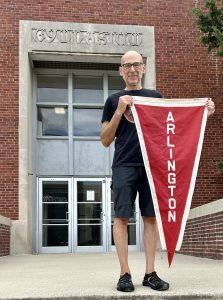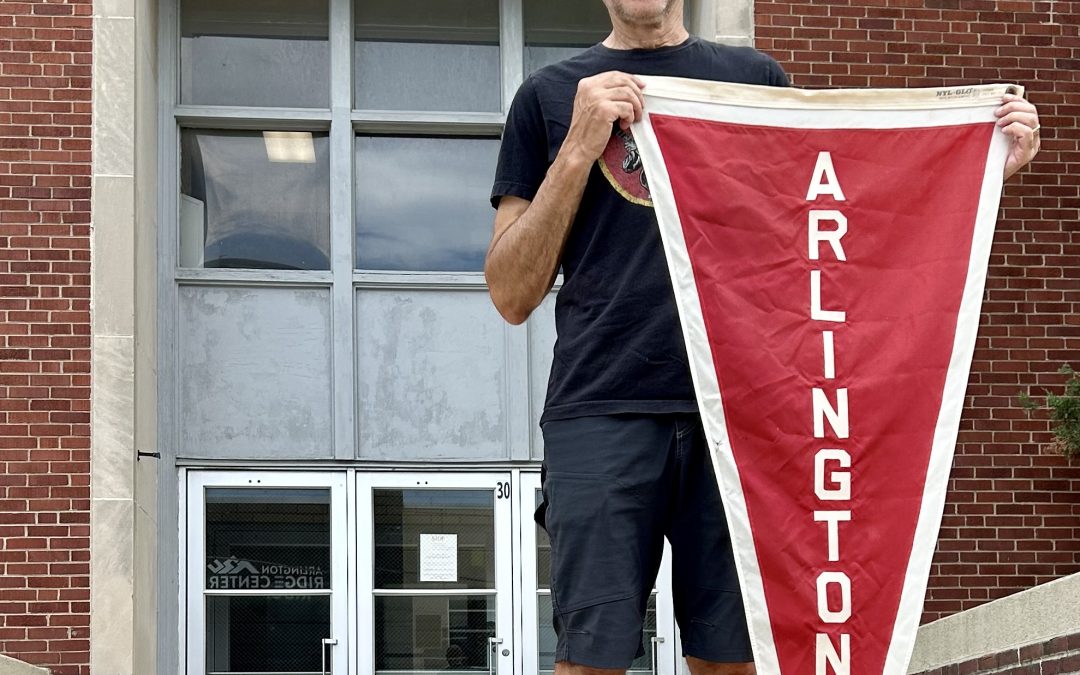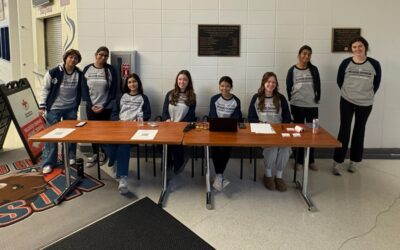Chip Brooks, co-owner of Hey Nonny in Arlington Heights, has enjoyed writing a series of musicals depicting snapshots of Arlington Heights history. Next week, for the first time, he will present an encore presentation of his original work, Death of the Cardinals: the Closing of Arlington High School. The show returns at 7:30 p.m. Jan. 21 and 22 at Hey Nonny, located at 10 S. Vail Ave.

Band members, led by Music Director Neil Carson on sax, at a rehearsal.
The show, which commemorated the 40th anniversary of the closing, first played in September and now returns by popular demand. The musical opens with the 1984 student council president, Thor Steingraber, asking the question: “How could this happen?” Brooks, who spent his career as an attorney, sets out to answer that question.
“I didn’t grow up in Arlington Heights, but in my 37 years in this town, I’ve heard a lot about the pain of Arlington High closing” Brooks says, “so I really wanted to try to figure out what happened – what went wrong.”
The encore presentation has drawn members of the Arlington Heights board of trustees to attend, as well as the children of Arlington’s last principal, John Rowe, including Tom Rowe, class of 1971, from Dallas and his sister, Cathy Casey, class of 1969, from Tulsa.

Hey Nonny owner Chip Brooks with pennant from Arlington High
“To have them there will be a treat, I hope that we make them proud,” Brooks says. “Their father begins and ends the show. The lines at the very end are among the things John Rowe said on June 8, 1984. Everyone agrees that John Rowe was the heart and soul of a great school, and of the civilized way in which students dealt with the closing.”
While the subject matter is serious and the outcome doesn’t change, the musical selections keep the feeling upbeat and even funny.
Live musicians provide a soundtrack to the dramatization. Numbers include some historical selections as well as early 1980s hits, including John Lennon’s Nobody Told Me, Journey’s Who’s Crying Now? and Feeling Stronger Every Day by local kids turned superstars, Chicago.
Brooks drew on his legal background when he poured over the 30 public meetings and hearings, as well as the public outcry and even lawsuits that eventually led to the school’s closing.
At the last meeting on June 8, 1984, John Rowe states that this was not just a school closing but the end of a long, productive relationship between the village of Arlington Heights and its high school.
“The town and the school grew up together,” Rowe said. “Together, they made us proud to be Arlington Heights residents. Today, we’re ending part of what made us proud – part of who we are.”

Band members also have roles in the show.
Forty years from now, nobody’s likely to care about what happened, he adds. But, in fact, through the retelling of what led up to the closing, Arlington Heights residents still care.




